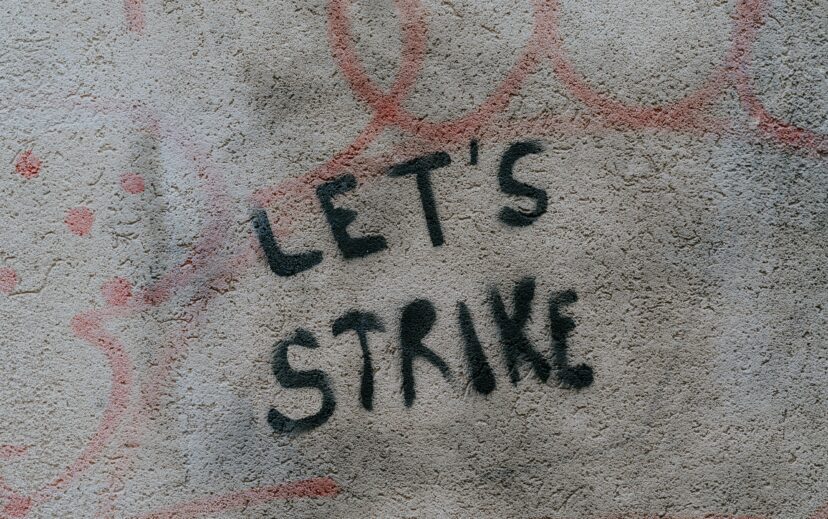On May 2, the Writers Guild of America (WGA) began a nationwide strike after contract negotiations with the Alliance of Motion Picture and Television Producers (AMPTP) broke down. The strike has brought film and television productions to a screeching halt. Some production companies have started to put their partners on notice that this strike is triggering a force majeure clause. An experienced entertainment attorney can help explain the advantages and disadvantages of a force majeure clause in the WGA strike context.
Why is the WGA striking?
The WGA is a labor union that represents writers working in film, television, news and online media. The AMPTP is a trade association that represents television and film production companies. The WGA writers began striking after negotiations over their collective bargaining agreement with AMPTP failed. Specifically, WGA writers are demanding higher wages and more residuals, especially when their work repeats on streaming services, guaranteed staffing sizes for writer’s rooms, and they want to regulate the use of artificial intelligence in creating content.
What is a force majeure clause?
A force majeure clause is a provision in a contract that excuses a party’s performance under the contract when unforeseeable circumstances beyond their control make performance impossible or impractical. In other words, a force majeure clause can allow parties to a contract to terminate the agreement or extend their time for performance under certain circumstances. A standard force majeure clause typically looks something like this:
“Force Majeure. No Party shall be liable or responsible to the other Party, nor be deemed to have defaulted under or breached this Agreement, for any failure or delay in fulfilling or performing any term of this Agreement when and to the extent such failure or delay is caused by or results from acts beyond the impacted Party’s reasonable control, including, without limitation, the following force majeure events that frustrates the purpose of this Agreement: (a) acts of God; (b) flood, fire, earthquake or explosion; (c) war, invasion, hostilities (whether war is declared or not), terrorist threats or acts, riot or other civil unrest; (d) government order or law; (e) actions, embargoes or blockades in effect on or after the date of this Agreement; (f) action by any governmental authority; (g) national or regional emergency; (h) strikes, labor stoppages or slowdowns or other industrial disturbances; (i) epidemic, pandemic or similar influenza or bacterial infection (which is defined by the United States Center for Disease Control as virulent human influenza or infection that may cause global outbreak, or pandemic, or serious illness); (j) emergency state; (k) shortage of adequate medical supplies and equipment; (l) shortage of power or transportation facilities; and (m) other similar unforeseeable events beyond the reasonable control of the impacted Party.”
Force majeure clauses are found in a variety of contracts, across all industries. During the COVID-19 pandemic, force majeure clauses were frequently invoked to terminate contracts or extend the time for performance. In many entertainment industry contracts, studios include force majeure clauses that specifically include a strike in the definition of a force majeure event.
Can a force majeure clause help production companies during the WGA strike?
As a result of the WGA striking, many studios have had to stop production as they require writers on hand. A force majeure clause can potentially help studios protect against breach of contract claims, not only in contracts with writers, but also contracts with other parties, like actors, directors, and others involved in a specific project. For studios in the context of a WGA strike, the advantage of having a force majeure clause is that they can potentially avoid breaching these contracts and mitigate their damages. The disadvantage is that the studios may be perceived as taking advantage of the strike to avoid their contractual obligations.
Even with a force majeure clause, unless the clause specifically lists a strike in its definition, courts have generally ruled that strikes are foreseeable, especially in industries that are historically prone to labor disputes such as the entertainment industry. As a result, force majeure defenses based on unforeseeable circumstances may not be applicable. In cases where a court recognizes a strike as unforeseeable, it is still typically very difficult to invoke a force majeure defense, as the courts set a high standard for their acceptance. For example, in interpreting this clause in the context of a strike, the California Supreme Court stated, “Even in the case of a force majeure provision in a contract, mere increase in expense does not excuse the performance unless there exists extreme and unreasonable difficulty, expense, injury, or loss involved.” However, the specific wording of force majeure clauses can vary, with some specifying a lower threshold for invoking the clause. Therefore, the precise wording of the clause is a critical factor in determining its applicability in a given situation.
How long would the WGA strike have to go on before studios would be able to use a force majeure defense?
The length of time required for the studios to be able to use force majeure will depend on the specific language of the contract and the circumstances of the strike. Typically, the clause will require that the unforeseen circumstance (in this case, the strike) lasts for a specified period of time before the party can invoke force majeure.
If studios do end up using force majeure as a defense, how much money could that potentially save?
It is difficult to estimate the exact cost of the WGA strike for the studios, as it will depend on a variety of factors such as the length of the strike, the number of productions affected, and the terms of individual contracts.
The amount of money that could potentially be saved by the studios through the use of force majeure will depend on the specific language of the clause and the damages that would have been incurred if the studio had been required to perform its contractual obligations during the strike.
According to estimates by the Los Angeles County Economic Development Corporation, the impact of the previous writers’ strike (15 years ago) was substantial, with California’s struggling finances taking a significant hit. The strike resulted in lost wages of $772 million for writers and production staff, as well as lost revenue of $981 million for businesses that provide services to the industry. The ripple effects of the strike also caused losses of $1.3 billion for businesses that would have benefited from the wages lost during the strike. It is important to note that these figures have not been adjusted for inflation.
What legal recourse do writers have if studios end up exercising force majeure?
If studios do end up exercising force majeure, writers may have legal recourse to challenge the studios’ interpretation of the clause or seek damages for breach of contract. The specific legal recourse available will depend on the language of the contract and the circumstances surrounding the use of force majeure.
Conclusion
Effective contract drafting can help all sides navigate uncertain circumstances. While the WGA strike is ongoing, force majeure provisions may offer protection for the studios and production companies in their other contracts. If you have additional questions about the strike or other aspects of entertainment industry contracts, please reach out to our team.






